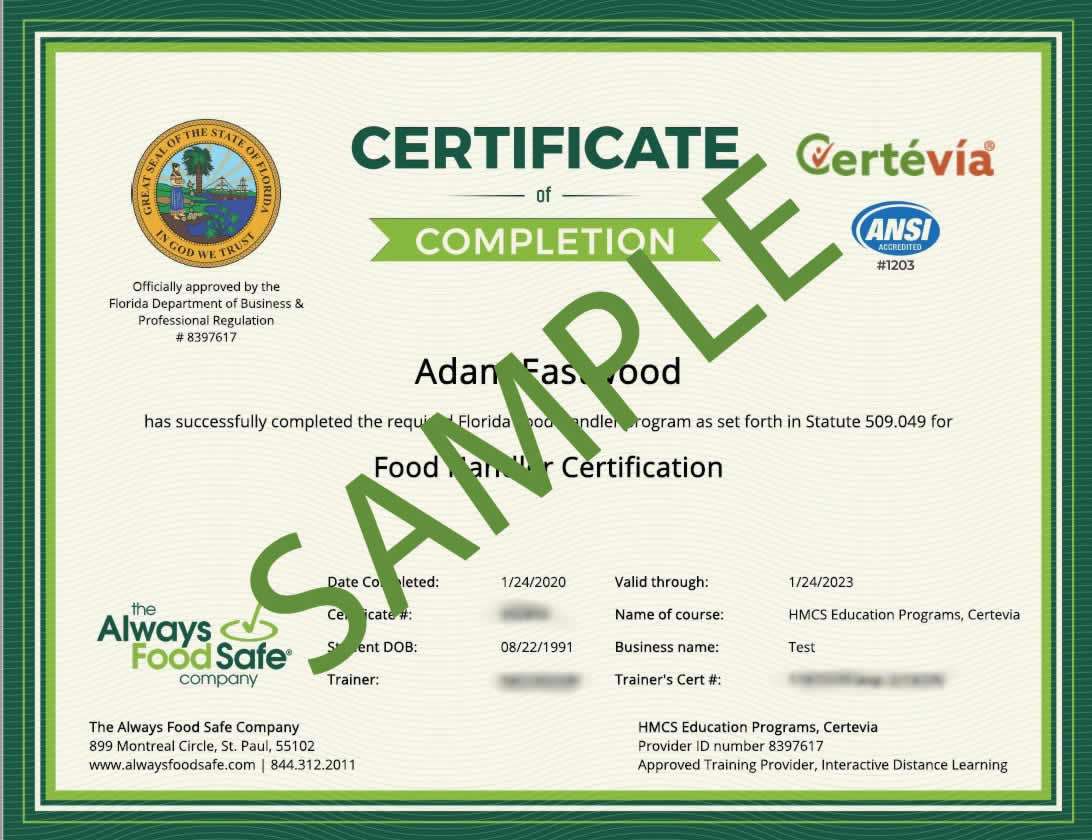How to Acquire Your Food Supervisor Accreditation Promptly
Acquiring your Food Supervisor Qualification efficiently needs a systematic strategy, starting with an extensive understanding of the specific demands in your location. Selecting a recognized training program that lines up with your timetable is important, as is making use of appropriate research materials to adequately plan for the examination. After completing your training, prompt organizing of the exam can avoid unneeded delays. Nevertheless, lots of people overlook vital elements that can better expedite this process, which may dramatically influence their certification trip. Discovering these subtleties can inevitably streamline your path to accreditation.
Research Study Accreditation Requirements

Hopeful food supervisors should initially recognize which accreditations are acknowledged and requisite in their territory. This typically requires reviewing regional laws and policies that determine food safety and security practices and the certifications required for managerial positions. Recognizing the qualification criteria, such as prior experience in food service or associated fields, is crucial.

Select a Reliable Educating Program
Selecting the appropriate training program is a crucial step after recognizing the qualification needs in your area. The efficiency of your training can significantly influence your understanding of food safety and security principles, which are essential for passing the accreditation examination. Begin by looking into programs certified by reputable companies, such as the American National Requirement Institute (ANSI), as these usually stick to market requirements.
Take into consideration the training style that finest matches your learning style. Examine the curriculum to guarantee it covers key topics such as foodborne health problems, hygiene, and secure food handling methods.
Validate that the program consists of detailed materials and sources to assist in your knowing. By meticulously selecting a training program that aligns with your demands, you can improve your preparation for the food manager qualification exam.

Plan For the Examination

Make use of research materials that straighten with the test's structure. Lots of companies use research overviews and practice tests, which can be indispensable in assessing your understanding and readiness. Participate in active knowing techniques, such as flashcards or seminar, to improve retention of vital info.
Additionally, consider attending testimonial programs or workshops that offer extensive protection of important topics. These sessions usually consist of professional insights that can clear up complex concepts and enhance your understanding.
Schedule Your Exam Day
Selecting the correct time to schedule your test day is a vital action in the certification view procedure. Choosing a proper date allows you to designate adequate time for prep work while balancing other individual and specialist dedications. Consider your present workload and any type of upcoming occasions that may sidetrack you from focused research.
Objective to arrange your examination after finishing your primary coursework and method examinations. This guarantees you feel great in your understanding and skills. In addition, think about arranging your test for a day when you are generally at your most sharp and concentrated, as psychological quality can dramatically impact performance.
It is also a good idea to examine the availability of exam slots in your area, as some places may have limited openings. Arranging your examination well in development can assist you secure a recommended time and area. Moreover, understand the certification's expiry plans, as choosing a day also far in the future may result in a gap in your expertise.
Eventually, the goal is to discover an equilibrium in between preparedness and availability, ensuring Find Out More you approach your exam with self-confidence and a strong structure of knowledge.
Maintain Your Qualification
Maintaining your qualification is necessary for guaranteeing continuous skills and compliance in food administration practices. Qualification usually needs revival every 3 to 5 years, depending on the releasing organization. To stay present, it Recommended Reading is vital to understand the specific revival needs of your qualification body, as they may differ.
Proceeding education and learning is a key element of keeping your qualification (ServSafe Food Manager Certification). Taking part in workshops, seminars, or on-line programs connected to food management, health, and safety and security techniques not just boosts your understanding yet might also accomplish renewal requirements. In addition, numerous accreditation organizations supply sources and training sessions to help you stay informed concerning the most recent industry requirements and laws
Practicing good food management within your work environment is similarly critical. Routinely using your knowledge and abilities strengthens your competence and might provide documentation that shows adherence to finest practices.
Lastly, monitor your accreditation's expiry day and any called for documents for the renewal process - Certified Food Manager Certification. Proactively taking care of these components will make sure that you keep your certification without disruption, enabling you to proceed supplying risk-free and reliable food monitoring in your specialist atmosphere
Final Thought
Achieving Food Manager Qualification effectively requires a tactical technique that consists of complete study of regional demands, choice of an ideal training program, and diligent prep work for the examination. Timely scheduling of the examination adhering to conclusion of training is vital to prevent unneeded hold-ups. Furthermore, staying educated concerning renewal needs ensures the upkeep of accreditation standing. By adhering to these laid out steps, individuals can successfully browse the certification process and enhance their professional qualifications in food monitoring.
The course to obtaining food supervisor qualification is not consistent; it differs dramatically depending on local laws and the certain certification program picked. The effectiveness of your training can considerably affect your understanding of food security concepts, which are important for passing the certification exam. By carefully picking a training program that aligns with your demands, you can boost your preparation for the food manager certification test.
Complete prep work is vital for success on the food manager accreditation test.Accomplishing Food Supervisor Accreditation efficiently necessitates a tactical technique that includes detailed study of local requirements, choice of a proper training program, and thorough preparation for the examination.